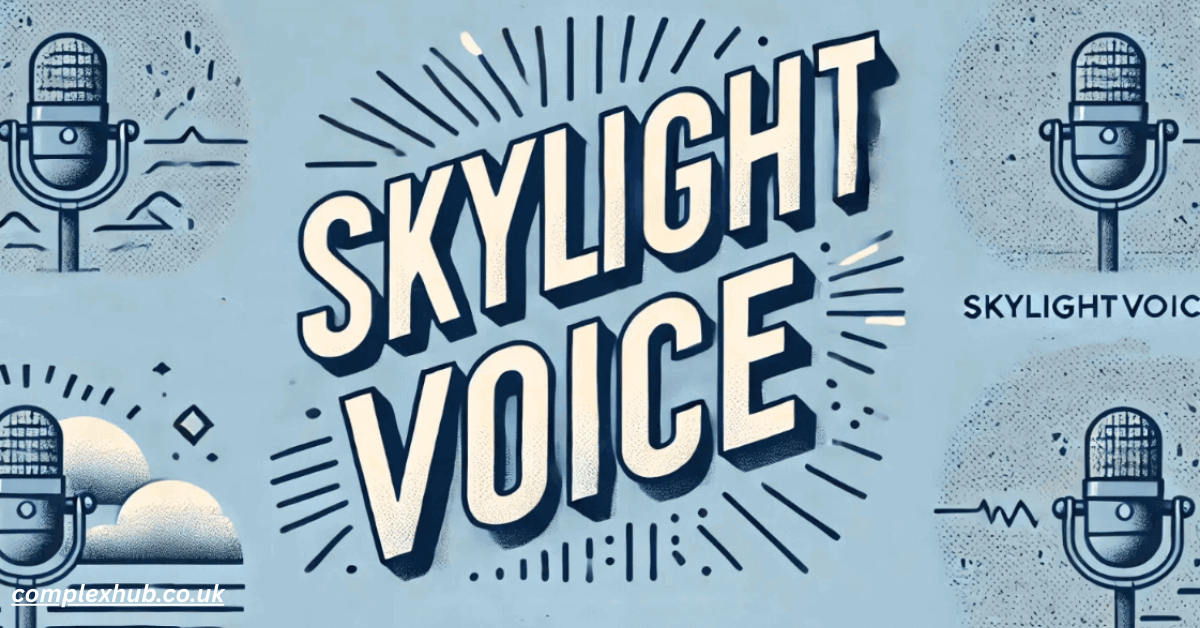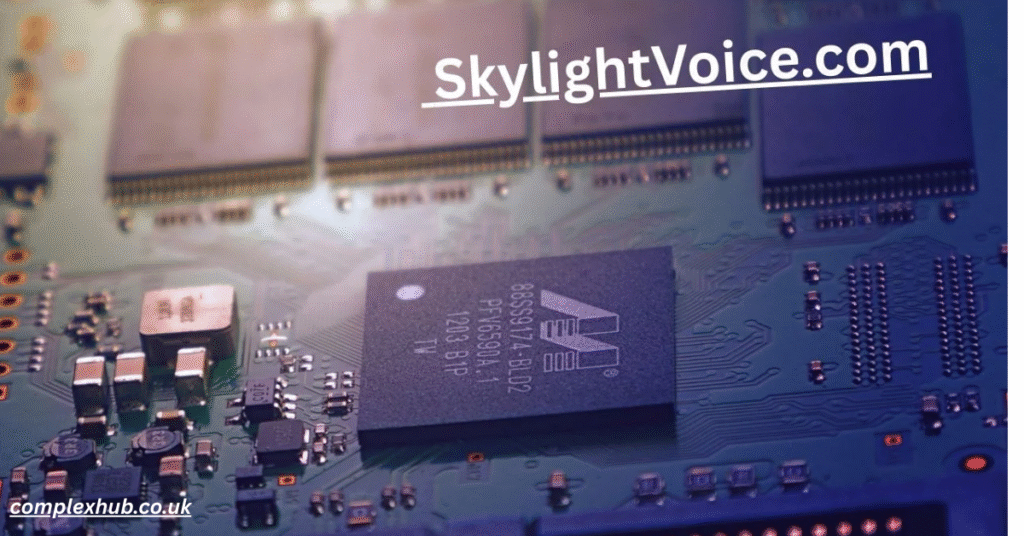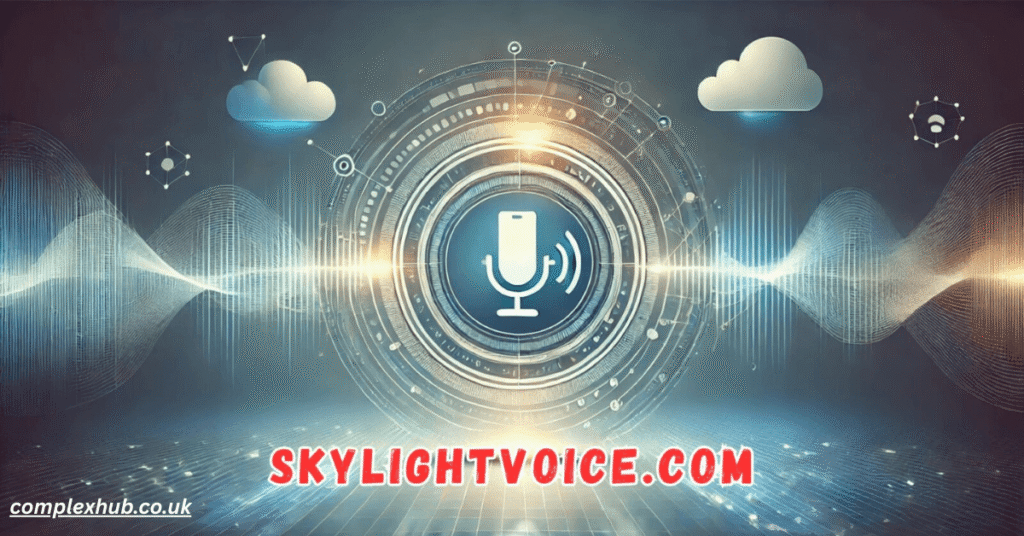
The way businesses interact with customers, systems, and internal workflows is undergoing a transformative shift, thanks to AI voice technology. From voice assistants in conference rooms to speech-to-text analytics for customer service, voice-enabled technology is shaping the future of work. It empowers hands-free control, real-time insights, and seamless human-computer interaction across industries.
AI voice solutions—powered by machine learning voice integration, deep learning algorithms, and natural language understanding (NLU)—have evolved from mere novelties to enterprise-grade necessities. With a focus on trust, speed, and security, businesses can now harness powerful voice recognition software and VUI (Voice User Interface) platforms to drive smarter, faster, and more personalized user experiences.
What is AI Voice Technology for Business?
AI voice technology refers to the implementation of smart voice solutions—like voice assistants, speech recognition engines, and natural language interfaces—across business environments. It utilizes components such as STT Engines (Speech-to-Text), TTS Engines (Text-to-Speech), and context-aware AI systems to enable natural communication between humans and machines. Key players in the space include Amazon Transcribe, Microsoft Azure Speech APIs, and Google Cloud Text-to-Speech API.
Voice-enabled technology enhances productivity through automated workflows, real-time transcription, biometric voice authentication, and accurate data capture. For example, Alexa for Business lets employees schedule meetings or control devices via voice, while Siri Shortcuts can streamline mobile app functions with simple commands. These voice assistants for enterprise use make everyday tasks efficient and intuitive.

What is skylightvoice.com?
SkylightVoice.com is an innovative platform delivering next-generation enterprise voice apps. It integrates advanced AI voice assistant capabilities with business systems, offering features like speaker recognition systems, embedded deployment options, and robust voice app development tools. Focused on user-friendly experiences, Skylight Voice enables smooth integration of voice into CRM, ERP, and custom workflows.
By leveraging cutting-edge solutions like noise reduction engines, tagging engines, and compression engines, SkylightVoice ensures exceptional performance even in noisy environments. The platform prioritizes data security and compliance, incorporating biometric voice authentication and privacy-first AI architectures.
Quick Facts About AI Voice Technology
- Global Market Growth: The AI voice market is projected to exceed $30 billion by 2026.
- Enterprise Adoption: Over 60% of Fortune 500 companies use voice recognition or voice assistants in daily operations.
- Speech Accuracy: Voice recognition accuracy now exceeds 95%, even in noisy environments, thanks to advanced noise reduction engines.
- Leading Tools: Major services include Amazon Transcribe, Microsoft Azure Speech APIs, and Google Cloud Text-to-Speech API.
- Multilingual Support: AI voice platforms can understand and respond in over 100 languages and dialects.
The Power of Voice-Enabled Technology in Enterprise Environments
Businesses are embracing voice assistants for enterprise as a cornerstone of digital transformation. These tools reduce reliance on manual inputs, improve accessibility, and support inclusive user experiences. For instance, Google Assistant is increasingly used in enterprise logistics and customer support for its robust NLU and context-aware responses.
Cloud voice computing is another game-changer, enabling scalability and real-time deployment of AI-powered user experiences across teams and devices. With seamless integration into platforms like Microsoft Teams and Google Maps, voice becomes an intelligent bridge between data, people, and processes.

Machine Learning Voice Integration:
At the heart of AI voice innovation lies machine learning voice integration. Deep learning algorithms enable systems to adapt to users’ speech patterns, accents, and natural utterances. This results in smoother conversations and fewer errors in transcription or command execution.
Natural language understanding (NLU) paired with Automatic Semantic Understanding (ASU) powers real-time analytics and actionable insights from voice data. For example, AI can extract customer sentiment, tag intents, and provide predictive insights, improving sales and support outcomes.
Voice Recognition Software and Accuracy in Noisy Environments
A critical milestone in voice recognition software is the ability to operate in challenging acoustic settings. Noise reduction engines and compression engines enhance clarity and accuracy in crowded offices, factories, and public spaces. These technologies simulate human-like listening, ensuring that systems grasp meaning regardless of background noise.
STT engines like Amazon Transcribe and Microsoft Azure Speech APIs now boast over 95% speech-to-text accuracy. This enables applications like meeting transcription, legal documentation, and customer service logs without compromising on precision.
Enterprise-Grade Voice Technology and Smart Deployment
Robust enterprise-grade voice technology supports secure, scalable, and high-performance solutions across sectors such as healthcare, retail, finance, and logistics. Whether it’s voice-enabled medical records or hands-free warehouse control, AI voice assistants are becoming mission-critical.
Smart voice solutions can be embedded directly into hardware or accessed via cloud APIs. This hybrid approach allows for flexible deployment models, empowering businesses to scale voice capabilities based on operational needs and user demand.
Biometric Voice Authentication and Speaker Recognition Systems
Security is a major concern for businesses adopting voice solutions. Biometric voice authentication provides a non-intrusive and secure method of verifying identity. Unlike passwords or tokens, voice biometrics analyze unique vocal patterns, tone, and rhythm.
Speaker recognition systems offer enhanced security for voice commands in sensitive environments, preventing unauthorized access and reducing fraud. These systems are particularly effective in banking, healthcare, and remote work scenarios where privacy and authentication are paramount.
Challenges and Limitations of Voice Recognition Technology Adoption
Despite its transformative potential, voice tech adoption isn’t without hurdles. Privacy and data security in voice tech remain critical challenges, especially regarding storage and analysis of sensitive voice data. Companies must ensure compliance with GDPR, HIPAA, and other regulations.
Another limitation is the diversity of accents, dialects, and languages. While systems are improving, perfect recognition in multi-lingual or non-standard environments remains an area of active research and development. Human-computer interaction must become more inclusive to serve global user bases effectively.

Final Thoughts
AI voice technology is no longer just a futuristic concept—it’s a practical, profitable reality for modern businesses. From biometric voice authentication to context-aware AI systems, the innovations behind today’s voice solutions drive efficiency, inclusivity, and intelligence. As platforms like SkylightVoice.com and tools like Alexa for Business evolve, companies have more opportunities than ever to engage customers and optimize operations through voice.
The future of business is hands-free, voice-driven, and powered by smart machines that listen, learn, and respond like humans. Companies that embrace this technology today are setting the foundation for tomorrow’s success.
FAQs
1. What is AI voice technology used for in business? AI voice technology enables automation of tasks such as meeting scheduling, customer support, data transcription, and workflow execution using natural voice commands.
2. How accurate is modern voice recognition software? Modern voice recognition engines like Amazon Transcribe and Microsoft Azure Speech APIs achieve over 95% accuracy, even in noisy environments.
3. Is AI voice technology secure for enterprise use? Yes. Technologies like biometric voice authentication and speaker recognition systems ensure secure and private use across enterprise applications.
4. Can AI voice assistants understand multiple languages? Absolutely. Most enterprise-grade AI voice systems support over 100 languages and dialects, making them suitable for global use.
5. What are some key platforms in voice app development? SkylightVoice.com, Amazon Transcribe, Microsoft Azure Speech APIs, and Google Cloud Text-to-Speech API are leading platforms in enterprise voice app development.
6. What industries benefit most from AI voice technology? Healthcare, retail, finance, logistics, and customer service sectors see major benefits through enhanced efficiency, hands-free solutions, and improved user experiences.
7. What’s the future of voice technology in business? With advancements in NLU, ASU, and voice biometrics, AI voice technology will continue to become more intuitive, secure, and essential to business workflows.
READ MORE: Crypto30x.com






